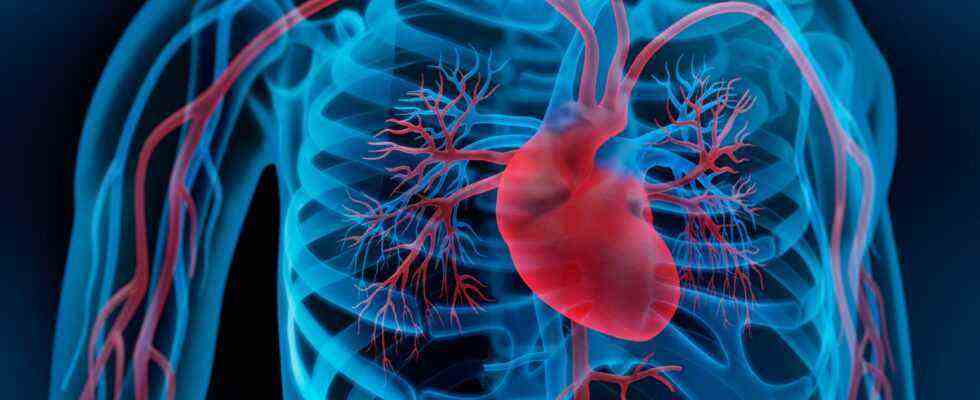Phytosterols: Negative influence on coronary heart disease
For many people in western countries, blood lipid levels are too high. about that to lower cholesterol, a change in diet is usually advisable. In addition, some resort to medicines. Phytosterol-enriched foods are also a popular alternative for some sufferers. But researchers are now reporting that these plant-based “cholesterol-lowering agents” can have a negative impact on coronary heart disease.
Atherosclerosis (hardening of the arteries), a disease of the arterial vessel walls, is widespread worldwide and an increasing health problem, especially in industrialized countries. According to a recent Message Researchers from the Medical Faculty of the University of Leipzig, in cooperation with other European study groups, have discovered that phytosterols have a negative impact on this and other coronary heart diseases. The results were recently published in the journalNature Communications” released.
Added to various foods
Phytosterols are lipid compounds formed in plants that are ingested with food such as nuts or vegetable oils. Some of these substances are artificially added to various foods such as yoghurt or margarine because they lower cholesterol and are said to have a positive effect on the organism.
On the other hand, phytosterols are similar to cholesterol and can themselves be stored in vascular walls, which could lead to atherosclerosis. In this condition, deposits form in the walls of medium-sized and large arteries, restricting and blocking blood flow.
Therefore, the relationship between phytosterols and coronary heart disease is controversial in medical research.
Blood from more than 10,000 participants examined
Scientists from the medical faculty of the University of Leipzig, in cooperation with other European study groups, carried out a genetic association analysis of phytosterol concentrations in the blood of almost 10,000 test persons. According to the information, causal relationships between phytosterols, cholesterol and coronary heart disease could be derived using a method for determining the influence of variable risk factors on diseases using genetic factors.
“It turns out that there are both direct and indirect cholesterol-mediated negative causal effects of phytosterols on the risk of coronary heart disease. The work thus makes a significant contribution to a controversial discussion that has been going on for many years,” explains study leader Prof. Dr. Markus Scholz from the Institute for Medical Informatics, Statistics and Epidemiology (IMISE) at the University of Leipzig.
He adds: “Although this does not yet lead to a direct conclusion regarding the addition of phytosterols to food, high phytosterol concentrations represent a risk factor that should be taken into account.”
“Possible Targets for Future Drug Development”
According to the release, a total of seven regions in the genome associated with blood phytosterol concentrations have been identified. Five of them were new. According to the experts, plausible candidate genes, i.e. genes with a biological effect on sterol metabolism, could be derived for all regions using bioinformatic analyses.
“This significantly expands our understanding of the genetic regulation of phytosterol concentrations in the blood. These genes and their products and functions represent possible target sites for future drug developments,” says Prof. Dr. scholz (ad)
Author and source information
This text corresponds to the requirements of medical specialist literature, medical guidelines and current studies and has been checked by medical professionals.
Sources:
- University of Leipzig: Phytosterols increase the risk of vascular diseases of the heart, (accessed: January 18, 2022), University of Leipzig
- Markus Scholz, Katrin Horn, Janne Pott, Arnd Gross, Marcus E. Kleber, Graciela E. Delgado, Pashupati Prasad Mishra, Holger Kirsten, Christian Gieger, Martina Müller-Nurasyid, Anke Tönjes, Peter Kovacs, Terho Lehtimäki, Olli Raitakari, Mika Kähönen, Helena Gylling, Ronny Baber, Berend Isermann, Michael Stumvoll, Markus Loeffler, Winfried März, Thomas Meitinger, Annette Peters, Joachim Thiery, Daniel Teupser & Uta Ceglarek: Genome-wide meta-analysis of phytosterols reveals five novel loci and a detrimental effect on coronary atherosclerosis; in: Nature Communications, (published: 01/10/2022), Nature Communications
Important NOTE:
This article contains general advice only and should not be used for self-diagnosis or treatment. He can not substitute a visit at the doctor.

